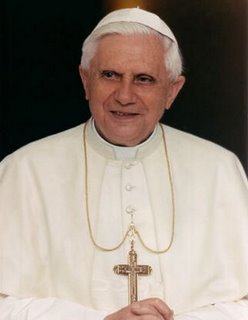Friends in Conversation - A Quiet Revolution of Hope
I need to get the DVD to listen to the session recordings again though. There were just too many thoughts and words flying all around the sanctuary in CLGC. Some of them really got me thinking hard. But I’ll need to listen carefully and prayerfully at least one more time to be able to digest them. I have to acknowledge that I learned more from the local partners in conversation, with the likes of Sherman Kuek, Dr. Ng Kam Weng, Tan Soo In, Dr. Voon, Rev. Fr. Dr. Jojo Fung, Dr. Herman Shastri, and Elder Tan Kong Beng among them, more than Brian McLaren himself. I guess it’s all down to the fact that I’ve already read quite a number of his books, and most of what he said was already quite familiar to me. Maybe I’ll write more about the contents of the conversation another time, at least after a second listening when I get the DVD.
I believe that this conversation has impacted me in many ways. And it’s not just about the things that were said during the event. Firstly, I have to admit that in listening to Brian and the conversation partners, as well as in mixing with many of the other participants in the conversation, I have been taught a great deal of humility. There is just so much more that I do not know; so much more that I have not experienced or even begun to put into practice in my own life. And there are so many people from whom I need to learn and follow even as they follow Christ.
It was through this conversation also, that my own faith was affirmed. After struggling with it for quite awhile, listening and engaging with people who think mostly (not entirely!) alike in terms of how we understand the gospel and what it means to follow Christ has given me the encouragement that I need to carry on. Maybe I’m not going down the wrong road after all. Maybe I’m not that heretical! Yes, I realize how much I need a community that can affirm my faith in this particular way. Maybe I should participate in more of these conversations with brothers and sisters from Emergent Malaysia. It will also help me to sharpen my own understanding and correct any maverick ideas that I may have!
Through the worship sessions, the songs that we sang inspired me to continue my own journey in carrying the cross daily and following Christ wherever He may lead me. It is time to live out the gospel of love, redemption, reconciliation and justice – the kingdom of God – in the context of my workplace in MMU. Praxis calls…
Of all the experiences during the conversation, the one that has left the deepest mark on me came at the closing of the event. All the participants stood in a large circle in the sanctuary. A huge candle was lit and passed around. And we shared a meal of bread together, just as how Jesus shared a special meal with His disciples on that fateful night before He was arrested. What made the experience so unforgettable? Why did it leave such an indelible mark on me? The session was led by Rev. Father Jojo Fung, a Roman Catholic priest. Every time I think about it, that same sense of awe that I had then returns to amaze me. In that short moment, it felt as if the body of Christ was one and undivided. It gave me hope for the Church in Malaysia and in the world.









